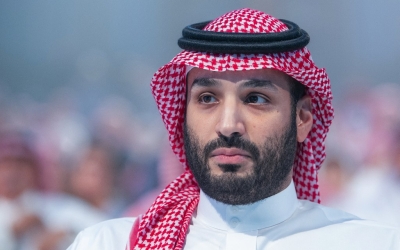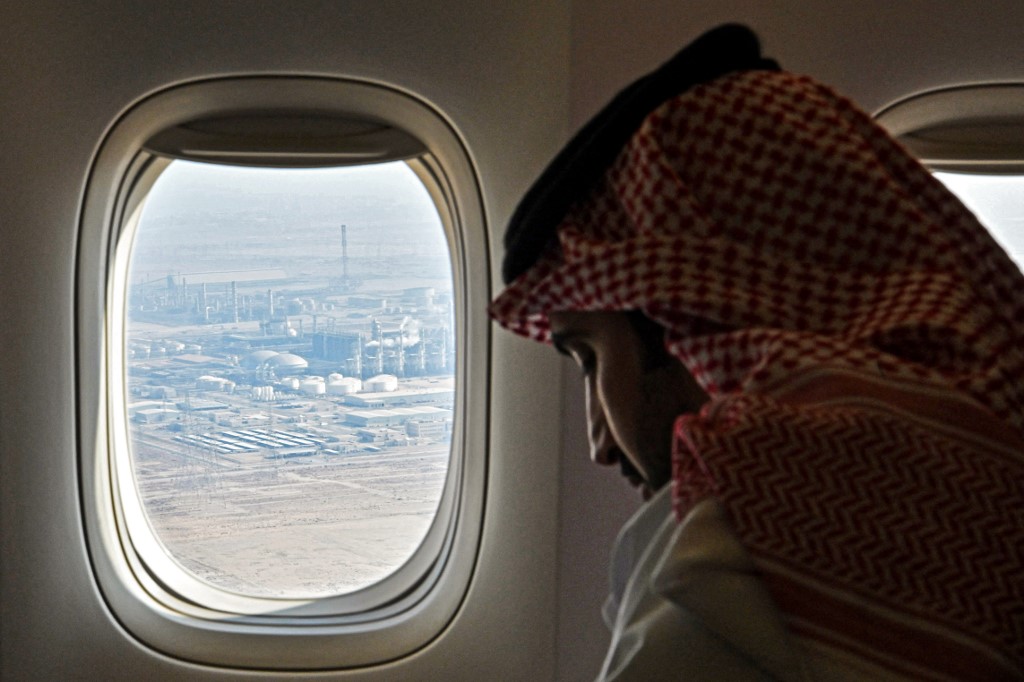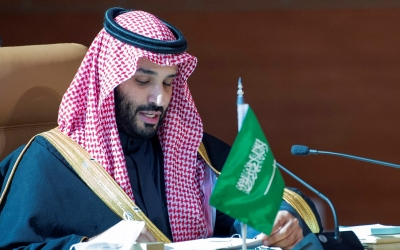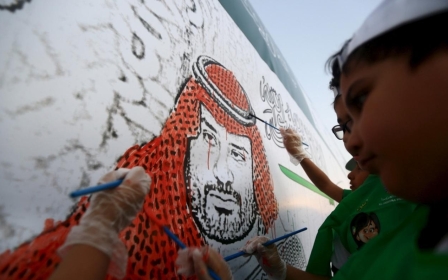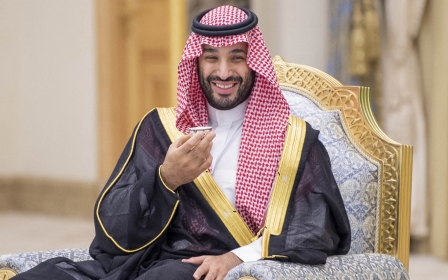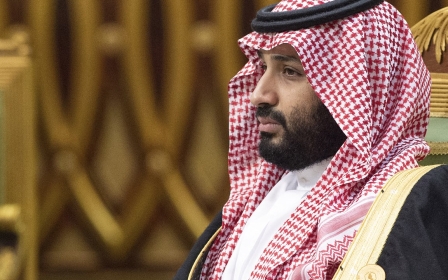Mohammed bin Salman 'doesn't care' if Biden misunderstood him
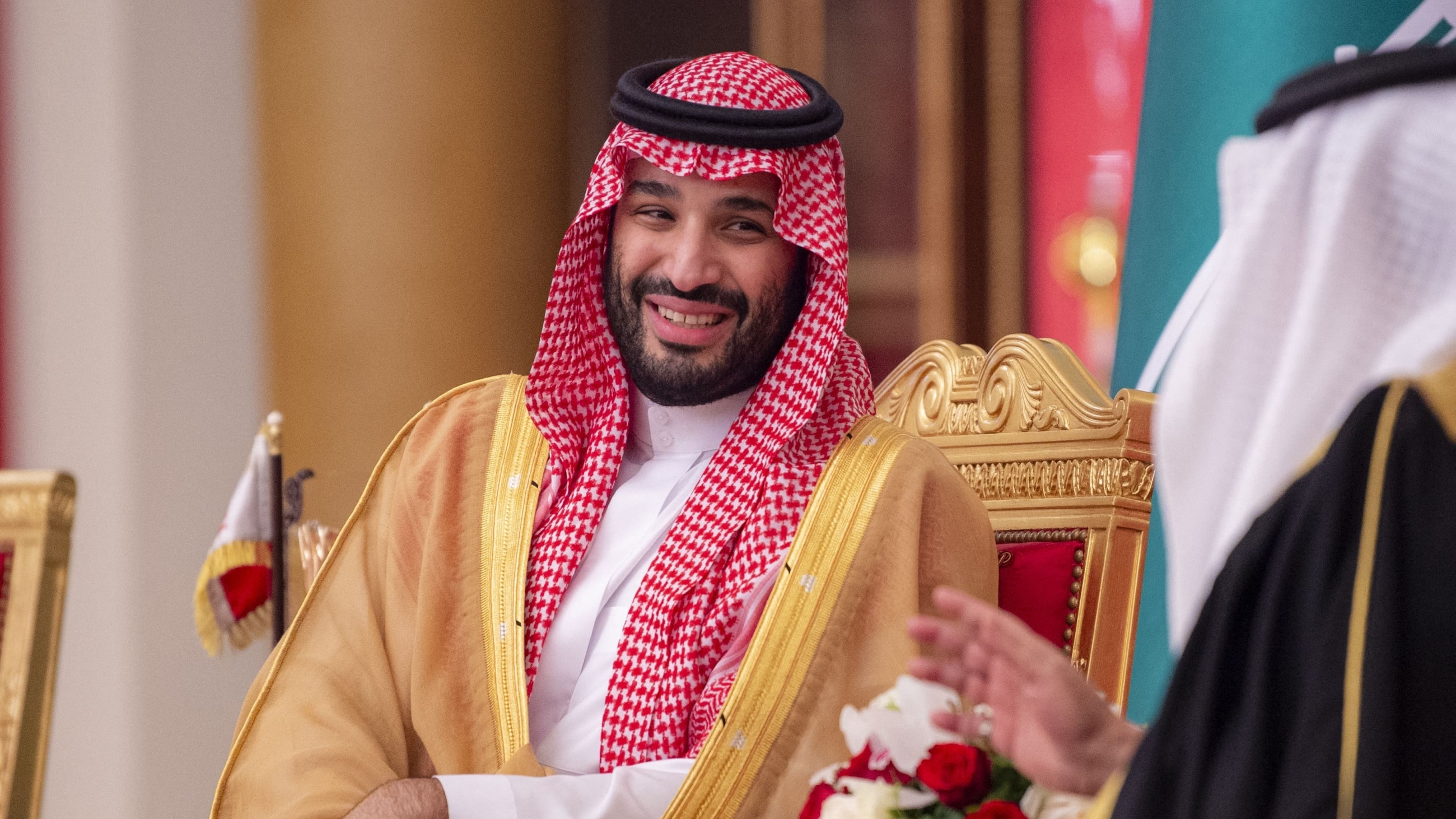
Saudi Arabia's Crown Prince Mohammed Bin Salman said he doesn't care if US President Joe Biden misunderstood things about him in an interview in The Atlantic published on Thursday.
The de facto ruler of Saudi Arabia, sometimes referred to as MBS, also warned the US not to interfere in the country's internal affairs.
"We don't have the right to lecture you in America," he said. "The same goes the other way."
When asked whether Biden misunderstood things about him, he said "simply, I do not care".
It is up to Biden "to think about the interests of America", he added, suggesting that if the American president wanted to alienate the ruling monarchy then he should "go for it".
The two allies have long enjoyed close ties.
But since becoming president Biden has taken a tougher stance on the crown prince, who the US said is responsible for the murder of Middle East Eye and Washington Post columnist Jamal Khashoggi.
Biden has suggested in the past that he would only deal with King Salman - and forgo the young prince.
The Atlantic article, which was written after three years of travel to Saudi Arabia and several meetings with MBS and some of his critics and supports, gives a glimpse of the prince's views on the Khashaoggi murder, the Saudi relationship with the US, China, Qatar's emir, and more.
'Human rights law wasn't applied to me'
Speaking about the murder of Khashoggi, who was killed by a hit squad with close ties to the prince in Istanbul in 2018, Bin Salman told the Atlantic that his rights were violated in the aftermath.
"I feel that human rights law wasn't applied to me," he said. "Article XI of the Universal Declaration of Human Rights states that any person is innocent until proven guilty."
Saudi government agents killed and dismembered Khashoggi after he entered the kingdom's consulate in Istanbul on 2 October 2018 to obtain paperwork for his marriage.
Saudi officials insisted for 17 days after the murder that Khashoggi had left the building alive before eventually acknowledging that he was killed. Riyadh, however, still says the assassination was an unauthorised operation that occurred without the approval of top leaders.
'I never read a Khashoggi article in my life'
- Mohammed Bin Salman, Saudi crown prince
Agnes Callamard, then-UN rapporteur on extrajudicial killings, found in a 2019 probe that the murder was a state-sanctioned crime.
A US intelligence report released after Biden came into office concluded that "Mohammad bin Salman approved an operation in Istanbul, Turkey, to capture or kill Saudi journalist Jamal Khashoggi".
Bin Salman has repeatedly denied involvement in the murder.
In December 2019, a Saudi court sentenced five people to death and sent three others to jail over the killing.
Two people close to the prince relayed that the prince said "the Khashoggi incident was the worst thing ever to happen to me, because it could have ruined all of my plans" to reform the country, The Atlantic revealed.
Arguing against his involvement in the murded, Bin Salman told The Atlantic that Khashoggi was not important enough to kill.
"I never read a Khashoggi article in my life," he said.
"If that's the way we did things", he added, referring to the assassiantion, "Khashoggi would not even be among the top 1,000 people on the list. If you're going to go for another operation like that, for another person, it's got to be professional and it's got to be one of the top 1,000."
Tilt towards the East?
The Khashoggi murder, as well the Saudi-led war in Yemen, are among the top criticisms the Biden administration has levelled at Bin Salman.
Despite rebuking Biden to The Atlantic, the prince insisted that Riyadh aims to maintain its good ties with Washington.
"We have a long, historical relationship with America," he said. "Our aim is to keep it and strengthen it."
But the crown prince seemed to hint at a tilt towards China if relations don't improve, according to the magazine.
"Where is the potential in the world today?" Bin Salman said. "It's in Saudi Arabia. And if you want to miss it, I believe other people in the East are going to be super happy."
On Thursday, the crown prince said that Saudi Arabia has the option of decreasing its investments in the United States, state-run news agency SPA reported.
"In the same way we have the possibility of boosting our interests, we have the possibility of reducing them," he said, speaking about Saudi investments in the US, which amount to $800 billion, according to SPA.
The recent comments from Bin Salman come against the backdrop of the Russian invasion of Ukraine, which could put Saudi Arabia in an advantageous position in talks with western nations over increasing its oil production to counter the surge in oil prices.
"The Saudis have demands too, before they meet any of the US requests," one source told Reuters on Thursday. "The Yemen file and the recognition of the crown prince as the de facto ruler are on top of these."
A second source said Bin Salman's only card is oil policy to press the Americans to give him what he wants, which is recognition and weapons for Yemen."
The Saudi authorities did not respond to Reuters's requests for comment.
'Sheikh Tamim is amazing'
Speaking about neighbouring Gulf nation Qatar, Bin Salman said that ties between the two are now "better than ever in history."
In 2017, Saudi Arabia, the United Arab Emirates, Bahrain and Egypt severed diplomatic, trade and travel ties with Qatar over claims that Doha supported terrorism, a charge the country has long denied.
Three and a half years later, the quartet reconciled ties with Doha in a "solidarity and stability" agreement signed in Saudi Arabia's al-Ula.
Speaking about his once long-time foe, MBS was all praise for Qatar's Emir Sheikh Tamim bin Hamad al-Thani.
"Sheikh Tamim's an amazing person," Bin Salman said, adding that the blockade was nothing more than "a fight between brothers".
Middle East Eye propose une couverture et une analyse indépendantes et incomparables du Moyen-Orient, de l’Afrique du Nord et d’autres régions du monde. Pour en savoir plus sur la reprise de ce contenu et les frais qui s’appliquent, veuillez remplir ce formulaire [en anglais]. Pour en savoir plus sur MEE, cliquez ici [en anglais].


